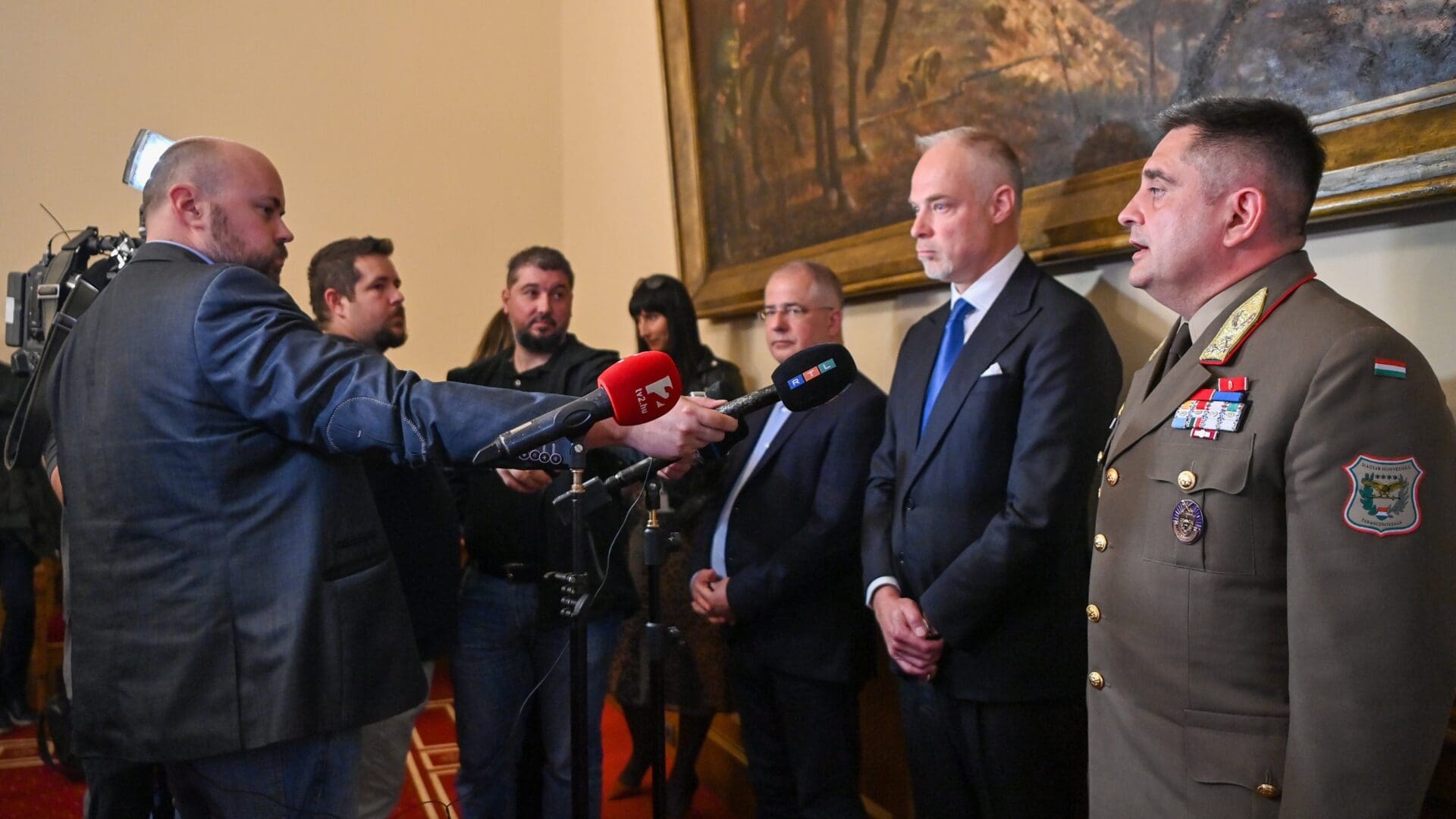In the face of a protracted war, newly appointed Chief of the General Staff Gábor Böröndi wants to focus on the development of a national force that can operate effectively within NATO. In his remarks in his parliamentary hearing, he also emphasised the importance of combat training and the reintroduction of the concept of nuclear deterrence in education.
Lieutenant General Gábor Böröndi graduated from the National Defence University, National War College in Washington, D.C., and has served in military missions such as SFOR in Bosnia and ISAF in Afghanistan. He was appointed Deputy Chief of the General Staff in 2019 and Military Representative of Hungary in NATO in 2021. Before his appointment was confirmed, the new Chief of the General Staff was heard by the National Assembly’s Defence and Law Enforcement Committee on 2 May.
At the hearing, Lt General Böröndi said his main task is
to mentally renew the Hungarian Defence Forces and to create a combat-ready, committed military
that can operate well within NATO. He said he aims to create a strong army based on the Hungarian military tradition, capable of influencing operations and strategy, which as a national army is a well-prepared, well-trained and well-equipped force of NATO.
The Chief of Staff argued that Hungary and the other neighbouring states of Ukraine have entered phase zero, the pre-war phase. Therefore, according to him, soldiers must be given combat training, first in lower and then in higher formations, which requires well-trained officers and non-commissioned officers, who are capable of thinking outside the box. The general explained how NATO is constantly learning from the Russian-Ukrainian war, and during his work in NATO, he saw how what lessons are learned from the war in Ukraine in areas such as military intelligence and reconnaissance. Also drawing on the experience of the war, he said that in his new position, he would pay particular attention to organising logistics that could supply combat troops. NATO was undergoing the greatest process of adaptation in its history, in which Hungary, given its geographical position and the development of its forces, played an inescapable role, the Lt General argued.
The newly appointed Chief of Staff attaches particular importance to the voluntary reserve system.
At the hearing, he also stressed the need to reach out to young people, to bring them closer to the military and then to recruit them. In terms of military education and training, he would like to focus on patriotic education, and mentioned the strengthening of combat training, of strategic reconnaissance and the reintroduction of the concept of nuclear deterrence as his main goals.
The Defence and Law Enforcement Committee supported the appointment of Lieutenant General Gábor Böröndi with eight votes in favour and one abstention. After the committee meeting, the Lieutenant General thanked the committee for placing their trust in him and said that he saw his appointment as both a 'task and a responsibility'.
The capabilities of the Hungarian Defence Forces must be raised from the combat level to the operational level, and the right man for this is Lieutenant General Gábor Böröndi, Hungarian Defence Minister Kristóf Szalay-Bobrovniczky said during the hearing. The Defence Minister stressed that the Hungarian government is on the side of peace and a ceasefire, but militarily, the country has to be prepared for a prolonged war in Ukraine, which means a persistent conflict on the eastern border of Europe.
‘We must reach the point where the Hungarian Defence Forces are at a higher state of combat readiness,
as a member of NATO as a defence alliance, but building on the national armed forces,’ the Defence Minister highlighted. In that regard, Gábor Böröndi is the 'right man in the right place at the right time', as his background, skills, experience, and knowledge of the domestic forces and NATO make him well suited to the task of leading the Hungarian Defence Forces from the combat level to the operational level. The Defence Minister expects that the Hungarian Defence Forces should not only be a force equipped with new assets but also undergo a profound change with regard to the organisational culture.
The former Chief of the General Staff, Lieutenant General Romulus Ruszin-Szendi was relieved of his duties by President Katalin Novák on 27 April, at the recommendation of Defence Minister Kristóf Szalay-Bobrovniczky. According to a statement from the Ministry of Defence, the Lieutenant General has made significant contributions to the acceleration and modernisation of military training and has taken significant steps to increase the combat capabilities of the Hungarian Defence Forces. The Lieutenant General will continue to serve his country in other areas.








